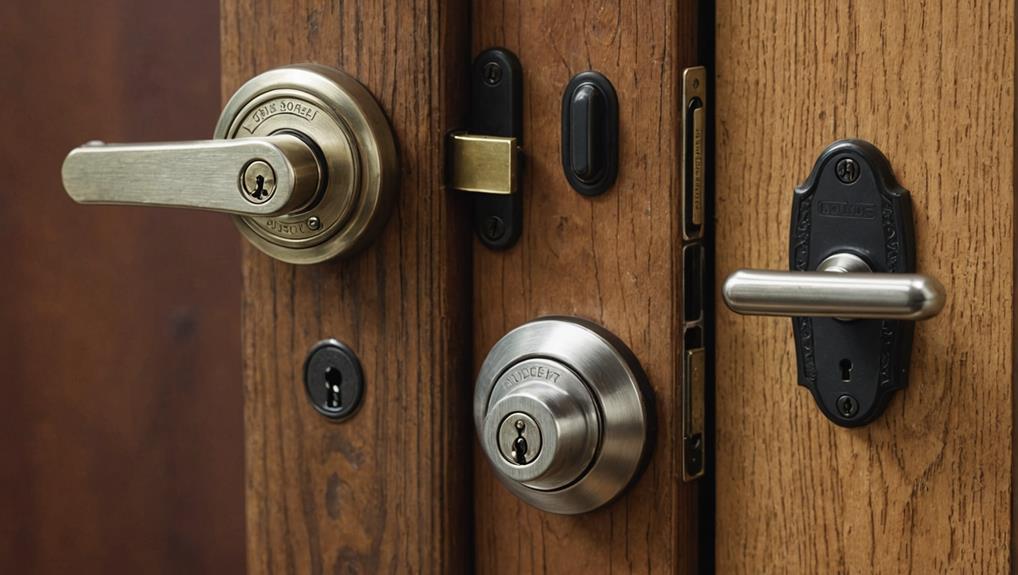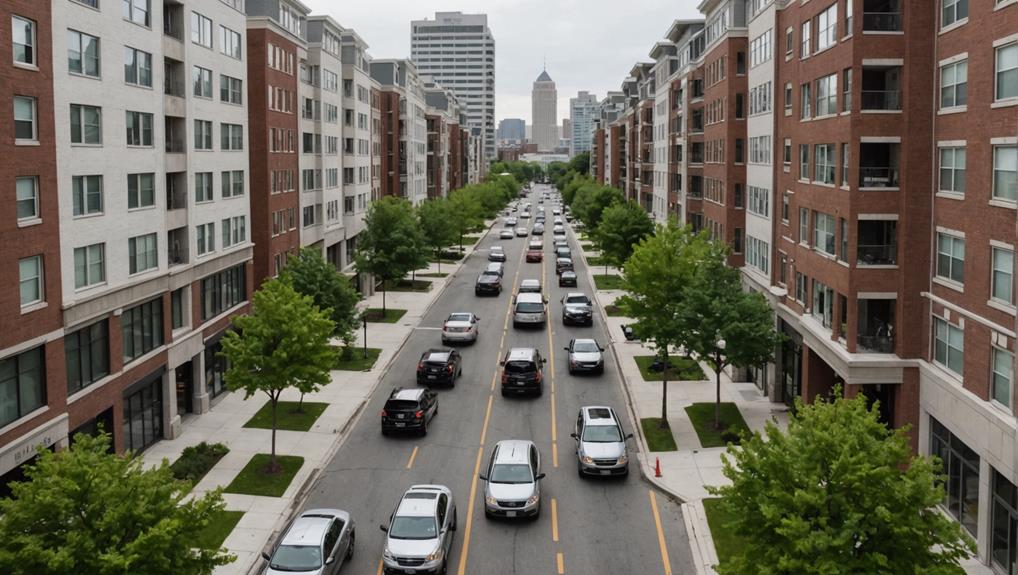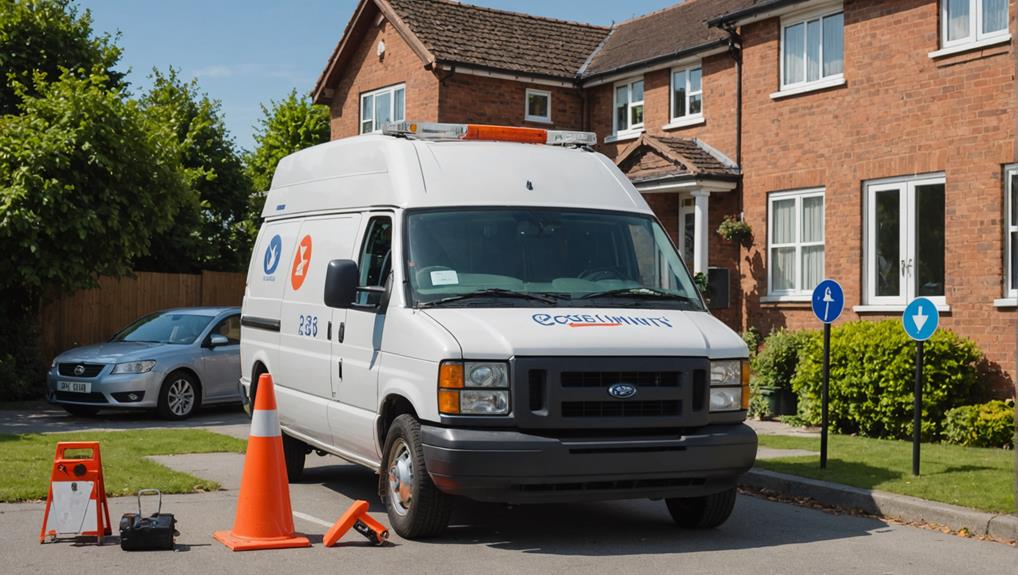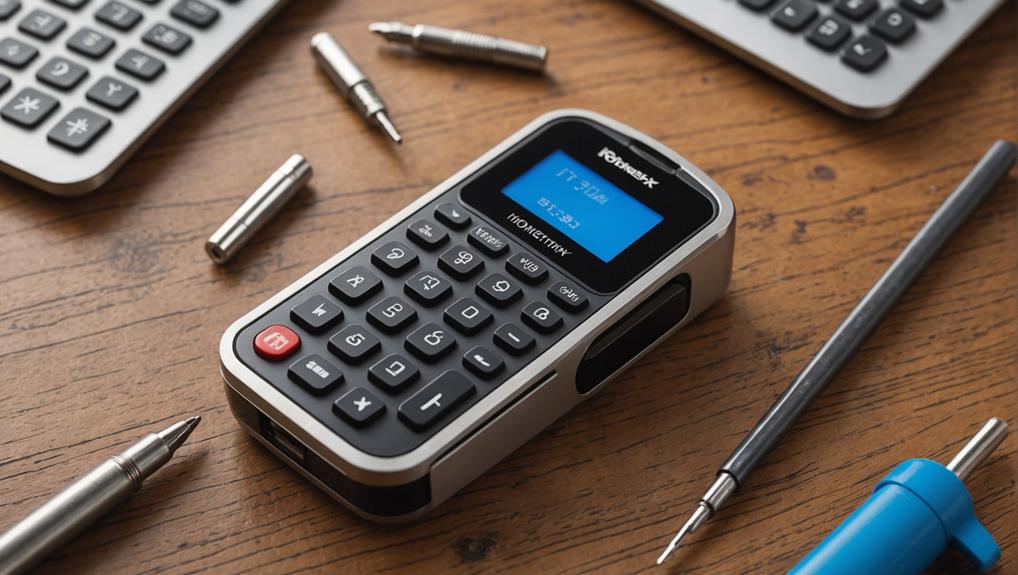When you're facing emergency re-keying, several cost factors come into play. The service provider's rates can vary, particularly if you're calling after hours or on weekends, so timing matters. Your location may also influence costs, with urban areas generally pricier than rural ones. The type and complexity of your lock greatly affect pricing, with standard locks being cheaper than smart locks or intricate systems. Travel distances can add to the bill as well, especially if you require prompt service. Understanding these factors helps you budget wisely for unexpected lock issues. There's more important information to keep in mind about securing your property.
Key Takeaways
- Emergency re-keying costs vary significantly based on service type, time of day, and location, affecting overall pricing.
- After-hours and weekend services typically incur higher fees than standard business hour rates.
- The complexity of the lock mechanism, such as pin locks versus smart locks, influences re-keying charges.
- Longer travel distances for locksmiths can increase service costs due to additional travel fees and time.
- Layering security features can improve safety but may also lead to increased expenses in emergency re-keying situations.
Service Provider Rates
When you need emergency re-keying services, understanding service provider rates is crucial. Knowing the cost of emergency rekeying helps you make informed decisions during stressful situations.
Urgent rekeying pricing can vary markedly based on several factors, including whether you opt for DIY vs. professional services. First, the time of day plays a critical role. If you require services after hours or during weekends, expect to pay a premium.
Additionally, the complexity of the lock can influence pricing. Some locks require specialized tools or skills, which could increase your costs.
It's also important to take into account your location. Urban areas often have higher labor rates than rural settings. As you look for a service provider, don't hesitate to ask for a detailed breakdown of potential costs. This transparency allows you to budget accordingly and find a provider that aligns with your needs.
Lastly, remember that quality matters. While you might be tempted by the lowest price, verify the provider has a good reputation and experience in emergency situations.
Balancing cost with quality is key to getting the best service when you need it most.
Type of Lock Mechanism

The type of lock mechanism you have can greatly impact the cost and complexity of emergency re-keying services. Different mechanisms require varying levels of expertise and tools, which can affect your overall expenses. Understanding this can help you prepare for potential locksmith emergency charges.
Here's a quick comparison to illustrate the differences:
| Lock Mechanism | Complexity Level |
|---|---|
| Standard Pin Lock | Low |
| Deadbolt | Moderate |
| Smart Lock | High |
For instance, standard pin locks are often straightforward to re-key, leading to lower emergency rekeying price guide estimates. On the other hand, smart locks may require specialized knowledge and tools, resulting in higher costs and longer service times.
When considering emergency re-keying, reflect on your lock type. It's crucial to choose a reliable locksmith who understands your specific mechanism. This way, you won't just save money; you'll also guarantee your security needs are met efficiently. By being informed, you empower yourself to make decisions that best serve your situation and protect your loved ones.
Time of Day Charges

When you need emergency re-keying, the time of day can greatly impact your costs.
Emergency services often come with premium pricing, especially if you require them during late night hours or on a holiday.
Standard rates typically apply during regular hours, but you might face higher fees for after-hours service or weekends.
Understanding these pricing variations helps you better prepare for unexpected lock issues.
Additionally, cost factors for emergency services can vary widely depending on the locksmith's location and availability.
Standard vs. After-Hours Rates
Emergency re-keying costs can vary considerably depending on the time of day you require the service. If you need assistance during standard business hours, you'll likely enjoy lower rates. Most service providers offer more affordable pricing when their technicians are available in the daytime, making it easier for you to manage costs.
However, if you find yourself in an emergency situation after hours, be prepared for increased charges. After-hours rates can be notably higher, reflecting the urgency and convenience you're seeking. It's important to remember that these rates often cover the additional costs of having a technician available outside regular hours.
When you're in a bind, think about the immediate need for safety and security that drives your decision to call for help. While the cost might be higher at night, the peace of mind you gain is invaluable.
You can also mitigate some costs by asking your locksmith about their pricing structure upfront, so you're not caught off guard. Understanding these standard versus after-hours rates empowers you to make informed choices, ensuring you can serve others effectively while managing your budget.
Weekend Pricing Variations
Weekend pricing variations can greatly impact your overall costs for emergency re-keying services. You might find that rates differ markedly depending on whether you need service during the day or late at night. Understanding these variations can help you budget more effectively and guarantee you're prepared for any unexpected situations.
Here's a quick look at how weekend rates can change:
| Time of Day | Typical Rate | Weekend Variations |
|---|---|---|
| Daytime (8 AM – 6 PM) | $100 | Standard |
| Evening (6 PM – 12 AM) | $150 | Increased |
| Late Night (12 AM – 8 AM) | $200 | Premium |
As you can see, the time of day you require services can lead to a considerable increase in costs, especially during late-night hours. By planning ahead and considering your options, you can minimize expenses while still guaranteeing that the needs of your community are met promptly and efficiently. Always feel free to communicate with your service provider to clarify these costs and explore any possible discounts or adjustments based on your circumstances.
Emergency Service Fees
Understanding emergency service fees is essential for budgeting unexpected re-keying needs. When you call for help outside regular business hours, be aware that service providers often charge more. These time-of-day charges can vary greatly based on when you need assistance, whether it's late at night, during weekends, or even on holidays.
You'll typically find that fees increase during peak hours, which usually include evenings and weekends. If you can plan ahead, try to schedule your re-keying during normal business hours to save money. However, emergencies don't always allow for that luxury.
One way to mitigate costs is to ask your locksmith about their pricing structure upfront. Understanding their fee schedule can help you make informed decisions and prepare for potential expenses. Many professionals are willing to work with you, especially if you express your need for budget-friendly options.
In the end, being proactive about emergency service fees won't only help you manage your finances but also guarantee you can continue serving others effectively when they need assistance the most.
Location Factors

When it comes to re-keying, location factors play a crucial role in determining the overall cost. The area where you need the service can impact pricing in several ways, as various elements such as local competition and market demand can influence the overall expenses. Understanding these factors can help you prepare better and serve your needs effectively.
Here are four key location considerations to keep in mind:
- Urban vs. Rural: If you're in a bustling city, you might encounter higher fees due to increased demand and operational costs. In contrast, rural areas may have lower costs, but response times can vary.
- Accessibility: If your location is difficult to access, such as a high-rise building without an elevator, technicians might charge extra for their time and effort. Additionally, lock replacement costs can escalate in challenging environments.
- Local Regulations: Different areas have varied licensing and permit requirements that can affect pricing. Be sure to check if your area has specific regulations.
- Service Area Coverage: Some locksmiths have defined service areas. If you're outside their range, additional travel fees may apply.
Complexity of Job

The complexity of the job can greatly impact the cost of emergency re-keying. If a lock system is intricate, like those found in commercial settings or high-security environments, it often requires specialized tools and expertise.
Re-keying versus lock replacement often presents different challenges, so understanding which option is best can influence overall costs. You might find that a simple residential lock can be re-keyed quickly and affordably, but if you're dealing with a keyless entry system or a multi-lock setup, expect the price to rise.
Additionally, the number of locks needing re-keying plays a significant role. Each lock adds time and effort, which in turn increases costs.
You'll also want to reflect on the type of locks involved. Some brands have proprietary systems that require specific knowledge and equipment, making the task more complex and costly.
It's also important to contemplate how urgently you need the service. If you request immediate assistance, the complexities of the job can escalate, leading to higher fees.
Travel Distance

When you consider emergency re-keying, travel distance plays an essential role in both pricing and time efficiency.
The farther a technician has to travel, the higher your costs may climb due to fuel and labor. Additionally, using a 24-hour mobile service guarantees that technicians can reach you promptly, minimizing any delays.
Plus, longer distances can delay the service, potentially leaving your property vulnerable for longer than necessary.
Distance Impact on Pricing
Travel distance plays an essential role in determining the cost of emergency re-keying services. When you're in need, knowing how distance affects pricing can help you make informed decisions.
Here's what to contemplate:
- Base Fee: Many companies charge a flat rate for travel, which can vary based on your location.
- Mileage Charges: If you're further away, expect additional mileage fees that can quickly add up.
- Service Area Limits: Some services only operate within specific zones. If you're outside these limits, you may face higher charges or even service denial.
- Urgency Levels: In emergency situations, distance can increase fees considerably, especially during off-hours or peak times.
Time Efficiency Factors
Understanding how distance impacts not just pricing but also time efficiency can be a game changer in emergency re-keying situations. When you need to respond quickly to a lock issue, every minute counts. If your locksmith has to travel a long distance, it not only increases the wait time but can also cause delays in providing the help your clients urgently need.
Consider the geographical area you serve. If your locksmith operates within a compact radius, they can reach your location faster, ensuring a speedy response. On the other hand, if they've to travel far, you might find yourself waiting longer than anticipated, which can be frustrating for everyone involved.
To enhance your service, it's wise to partner with local locksmiths who understand the urgency of your needs. Their familiarity with the area often means they can navigate more efficiently, reducing travel time considerably.
Prioritizing local resources not only saves time but also fosters trust within your community, demonstrating your commitment to timely service. Ultimately, balancing distance with effective service will enhance your overall client satisfaction and strengthen your reputation as a reliable provider.
Additional Security Features

Enhancing your property's security often goes beyond just re-keying locks; it involves integrating additional security features that can provide peace of mind.
By adding layers of protection, you not only safeguard your property but also serve your community by creating a safer environment for everyone.
Exploring options like smart locks can enhance your security while offering convenience and control, as highlighted in their benefits and drawbacks.
Consider implementing these four key features:
- Security Cameras: Installing surveillance cameras can deter potential intruders and provide evidence if an incident occurs. It's a visible reminder that you care about security.
- Motion-Activated Lights: These lights can illuminate your property when movement is detected, making it difficult for anyone to approach unnoticed.
- Alarm Systems: A reliable alarm system can alert you and authorities during a break-in, ensuring a swift response to the situation.
- Smart Locks: Upgrade to smart locks that allow you to monitor and control access remotely, giving you peace of mind even when you're not home.
Frequently Asked Questions
How Can I Prevent Needing Emergency Re-Keying in the Future?
To prevent needing emergency re-keying in the future, you should enhance your security measures.
Regularly check your locks for wear and tear, and upgrade them if necessary.
Implement a key management system to track who's access to your keys.
Consider using smart locks that allow for easy access control.
What Should I Do Immediately After Losing My Keys?
Losing your keys feels like losing a treasure map that leads to chaos!
First, take a deep breath. Check your pockets, bags, and anywhere you've been.
If you can't find them, don't panic. Consider calling a trusted friend or family member for support. They can help you brainstorm where they might be.
If all else fails, you might need to change your locks.
Are There DIY Re-Keying Options Available?
Yes, there are DIY re-keying options available! You can purchase a re-keying kit that matches your lock type.
These kits often include tools and instructions tailored for beginners. First, you'll need to remove the lock cylinder, then follow the kit's guide to replace the pins with new ones.
It's a great way to enhance security without the hassle of calling a locksmith. Just make sure you're comfortable with basic tools before diving in!
How Long Does the Re-Keying Process Typically Take?
The re-keying process usually takes about 30 minutes to an hour, depending on the number of locks involved and the technician's experience.
Once you've chosen a qualified locksmith, they'll assess your locks and create new keys on the spot.
If you're doing it yourself, it might take a bit longer, especially if you're unfamiliar with the tools.
Will My Homeowner's Insurance Cover Re-Keying Costs?
You might wonder if your homeowner's insurance will cover re-keying costs.
Generally, it depends on your specific policy and the circumstances surrounding the need for re-keying. Some policies do include coverage for lock changes, especially after a break-in or theft.
It's best to check with your insurance provider to understand your coverage and any potential deductibles. This way, you can be prepared for any unexpected expenses that may arise.
Conclusion
When you're faced with an emergency re-keying situation, remember that costs can vary widely based on several factors. Just like a painter choosing colors for a masterpiece, each element—service rates, lock type, and location—shapes your final bill. So, as you navigate this unexpected challenge, keep an eye on the details to guarantee you don't let a small oversight turn your budget into a chaotic canvas, splattered with unnecessary expenses.









